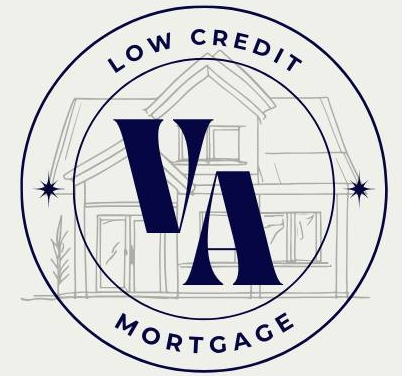Getting a VA Loan with a 500 Credit Score: What You Need to Know
The U.S. Department of Veterans Affairs (VA) loan program provides eligible veterans, active-duty military members, and certain surviving spouses with access to home loans that often come with more favorable terms than conventional loans. These loans offer benefits like no down payment, no private mortgage insurance (PMI), and generally lower interest rates.
However, while the VA itself does not set a specific minimum credit score for VA loans, lenders do impose their own requirements. Many lenders may require a credit score of 620 or higher for a VA loan, but it is possible to secure a VA loan with a credit score as low as 500, although it’s a more challenging process.
In this article, we’ll dive into how to get a VA loan with a 500 credit score, the challenges you might face, and what steps you can take to improve your chances of approval.
Understanding VA Loan Requirements
Before addressing how to qualify for a VA loan with a low credit score, let’s review the basic eligibility requirements for VA loans:
1.Service Requirements: You must be an eligible veteran, active-duty service member, National Guard member, or the surviving spouse of a service member who died in the line of duty or due to a service-related disability.
2.Certificate of Eligibility (COE): To apply for a VA loan, you must first obtain a COE from the VA, which verifies that you meet the service requirements.
3.Debt-to-Income (DTI) Ratio: Your DTI ratio, which measures your monthly debt payments in relation to your income, must generally be less than 41%. However, in some cases, the VA may approve loans with a higher DTI ratio if there are compensating factors, such as a large down payment or a stable employment history.
4.Occupancy Requirement: You must intend to live in the property as your primary residence.
What is the Role of Credit Score in VA Loans?
The VA does not set a minimum credit score requirement, but lenders do. In general, lenders look at your credit score to gauge your financial reliability and your likelihood of repaying the loan. A low credit score signals higher risk to lenders, which may lead to higher interest rates or a complete loan denial.
That said, VA loans are often more forgiving of lower credit scores than conventional loans because the VA provides a guarantee to the lender. This reduces the lender’s risk, but it doesn’t eliminate the need for the lender to ensure that the borrower is financially stable enough to repay the loan.
Challenges of Getting a VA Loan with a 500 Credit Score
A credit score of 500 is considered “bad” by most credit scoring models, and it will be difficult to secure a VA loan with a score in this range. Here are some of the challenges you may face when applying for a VA loan with a 500-credit score:
1. Stricter Lender Requirements
While the VA doesn’t impose a minimum credit score, most lenders require a score of at least 620, with some even requiring a score of 640 or higher. A 500 score is well below this threshold, making it difficult to find a lender willing to work with you.
2. Limited Options
With a credit score of 500, your options for VA loan approval will be significantly limited. Many traditional VA lenders may flat-out reject your application, and you’ll need to work with lenders who specialize in subprime loans or offer more flexible lending criteria.
How to Get Approved for a VA Loan with a 500 Credit Score
Even though getting a VA loan with a 500-credit score is challenging, it is not impossible. If you’re committed to securing a loan, here are some steps you can take to improve your chances:
1. Consider a Co-Signer
If you are unable to qualify for a VA loan on your own, you may be able to enlist the help of a co-signer. A co-signer with a higher credit score can offset your lower credit score and increase the likelihood of approval. Keep in mind that your co-signer will be responsible for the loan if you fail to make payments.
2. Save for a Larger Down Payment
While VA loans typically do not require a down payment, lenders may ask for one if your credit score is low. A larger down payment reduces the lender’s risk, which could improve your chances of getting approved. If you can put down at least 10% or more, it may increase your chances of securing a VA loan.
3. Refinance Your Existing Debt
If you have significant credit card debt or other loans, consider refinancing or consolidating them before applying for a VA loan. Reducing your overall debt load can improve your credit score and make you a more attractive borrower in the eyes of the lender.
4. Provide Compensating Factors
Lenders will also consider compensating factors, which are factors that help offset a low credit score. These may include a stable employment history, a solid savings account, a low DTI ratio, or a history of making timely rent payments. Be prepared to provide documentation that shows your financial reliability in areas other than your credit score.
5. Apply for a Subprime VA Loan
Some lenders specialize in providing VA loans to borrowers with low credit scores. These are sometimes referred to as “subprime” VA loans. While they can be harder to find, subprime lenders may be more willing to approve a VA loan with a score of 500, though you should be prepared for higher interest rates and fees.
6. Work on Improving Your Credit Score
While it may not help in the immediate term, if you have time before purchasing a home, working to improve your credit score can significantly increase your chances of securing a VA loan with better terms. Consider taking steps like paying down outstanding debts, disputing any errors on your credit report, and reducing your credit card balances.
Alternatives to a VA Loan with a 500 Credit Score
If you are unable to secure a VA loan with a credit score of 500, there are alternative loan options to consider:
1.FHA Loans: While FHA loans typically require a minimum credit score of 580 to qualify for 3.5% down, some lenders may approve you for an FHA loan with a score as low as 500 if you can make a 10% down payment. FHA loans may offer more flexibility than conventional loans, but the down payment requirement could be a barrier.
2.Seller Financing: In some cases, a home seller may be willing to finance the loan directly, bypassing the need for traditional lender approval. While this can be a good option, it’s important to ensure that the terms are fair and that you fully understand the repayment schedule and interest rates.
Conclusion
Obtaining a VA loan with a 500-credit score is difficult, but not entirely out of reach. The key is to shop around for lenders, consider all available options, and take steps to improve your financial profile. With persistence, a larger down payment, or a co-signer, you may be able to secure the financing you need. If not, consider alternative loan options like FHA loans or seller financing to help you achieve homeownership. Always work with a trusted lender or financial advisor to navigate your specific situation.

